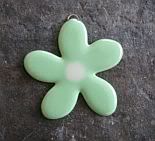Whether aging a collectible, or just keeping some extra bottles handy, properly storing wine can be difficult for 'Haveners. Most of us lack any type of cellar, or any real extra space.
When you don't have access to a genuine cellar, what are you to do?
First. Do you have
any cellar access?
Many New Haven area apartments have some sort of basement storage area. Best case scenario is a locked "cubicle", worst case a random corner. If you have secure basement storage you are already ahead of the game. Get yourself over to IKEA and grab a rack that suits your needs.
The cellar
should be a constant 55*F. While that may not always be possible, keep in mind that any temperatures down near the 30's will "numb" the wine (making it taste flat). Any temperatures up into the 80's will bake the wine, even slowly. Temperature fluctuations up and down will cause the wine itself to expand and contract, sucking air into the bottle, causing "oxidation". Most area cellars are built deep enough into our fine New England bedrock that the temperature should be quite ideal for our purposes.
Second. No cellar access? If you have the funds, get yourself a wine cabinet, a.k.a. "the wine fridge". I asked for
this one for Christmas. A decent wine cabinet will have varying temperature control. The better ones will control temperature
and humidity.
Third. No wine fridge for Christmas? Me neither.
Wine responds unfavorably to light. You're going to need a closet. Wine also dislikes excessive vibration, so keeping it under the sink or next to a motor or heater is out of the question. When using a closet, try to use one in a room that is air-conditioned during the summer months, if possible. If you're not using A/C, then try to find a closet towards the middle of your building, away from windows and any heat sources (baseboard heaters or air vents, etc.). Purchase a humidifier to be kept in the closet -- taking into consideration what items will need to be relocated from the closet. Bottles should be kept on their sides. This helps keep the inside of the cork wet, and effectively airtight.
Fourth. It's going to get hot soon.
If you are worried about a heatwave, it's probably time to drink the wine. Invite a few friends over and have your own wine-orgy. Or host a friends-only tasting. Or invite me over.
Fifth. Should I even be saving this stuff?
Unless you're getting into the $30 and up range, there really is no point in aging a wine. Wines that age best have high acidity, tannins, and sugar while young. All these act as natural preservatives. Some wines to consider...
- Big California Cabernets, from reputable producers. Caymus ($$$+), Beringer ($$+), Dunn Vineyards ($$$+), Robert Mondavi ($$$), Rudd ($$$+), Steltzner ($$+), Hess Estate ($$), and Staglin ($$+), are all good starting points.
- French Bordeauxs and Burgundies, red and white, from "Cru", "Grand Cru", and "Premier Cru" producers are a good bet. 2005 Bordeauxs, not yet available, are anticipated to be one of the best vintages in quite some time, so all you cellar-renters out there should keep these in mind.
- Champagnes will age well. Try to avoid N/V, or "non-vintage", champagnes for aging purposes. These are blended to create a consistent taste year to year, and while they will age, they will not do so as gloriously as some of the others. For example, a Clicquot N/V Yellow Label will fetch a $$$, whereas a Clicquot La Grande Dame 1996 will set you back $$$$+.
- Italian Barolos, French and German Gewurztraminers, and vintage ports are also good bets for the beginner.
When keeping wine for a very short amount of time, we can throw most of these rules out the window. Wine is delivered by noisy, unheated trucks with poor suspensions, afterall, so breaking the rules a little bit is generally okay.
The most important lesson, my fellow apartment dwellers, is that you should really just keep enough wine on hand for a couple weeks. This ensures you both some of the selection and all the quality that you would expect from a St. Ronin Street basement.
Cheers!








